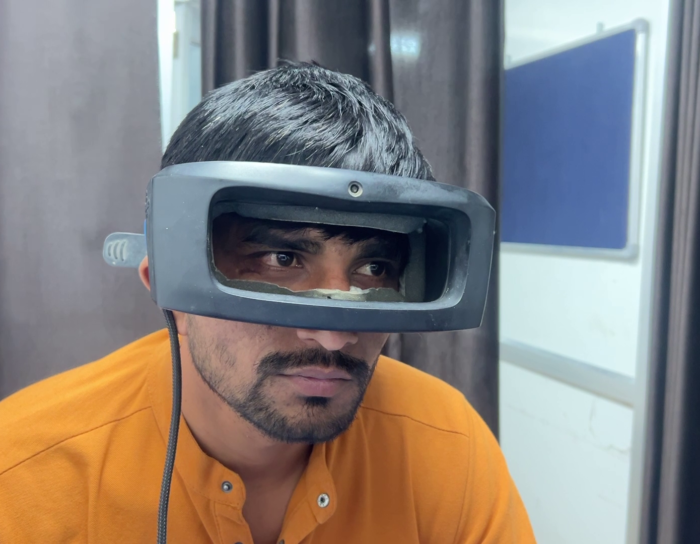services
ENT Assessments and Therapy







Hearing Assessments
Pure Tone Audiometry (PTA): Reliable hearing test to measure sensitivity across various frequencies and diagnose hearing loss.
Impedance Audiometry: Assessment of middle ear function through tympanometry, helping diagnose conditions like fluid in the ear or eustachian tube dysfunction.
Otoacoustic Emissions (OAE): Evaluation of inner ear hair cell function using sound wave emissions, crucial for newborn hearing screening.
Brainstem Evoked Response Audiometry (BERA): Advanced test measuring auditory nerve and brainstem responses, essential for detecting neurological hearing issues.
Tuning Fork Tests: Simple and effective tool to determine the type and location of hearing loss, often used in initial screenings.
Speech Discrimination Score (SDS): Test to assess clarity and understanding of speech, important for tailoring hearing aids and cochlear implants.
Stapedial Reflex Testing: Evaluation of the middle ear muscle reflexes to sound, useful for diagnosing auditory nerve disorders.
Vertigo and Balance Assessments
Videonystagmography (VNG): Comprehensive analysis of eye movements to diagnose balance disorders and dizziness, using advanced video technology.
Caloric Test: Vestibular system assessment through thermal stimulation of the inner ear, critical for diagnosing vestibular disorders.
Epley Maneuver: Therapeutic procedure to reposition ear canal crystals, providing relief from benign paroxysmal positional vertigo (BPPV).
Positional Test: Assessment of vertigo triggered by changes in head or body position, aiding in the diagnosis of positional vertigo.
Speech and Swallowing Therapy
Speech Therapy: Personalized treatment plans to improve articulation, fluency, and communication skills, tailored for children and adults.
Swallowing Therapy: Specialized techniques to address dysphagia, ensuring safe and effective swallowing for individuals with swallowing disorders.
Voice Therapy: Interventions to enhance vocal quality and strength, addressing issues such as hoarseness, vocal cord nodules, and muscle tension dysphonia.
Frequently Asked Questions About Voice and Swallowing Surgery
Q: Can I regain my voice after vocal cord paralysis?
A: Yes, voice-restoration surgeries such as medialization thyroplasty or injection laryngoplasty can significantly improve voice function.
Q: How do you treat swallowing difficulties after cancer surgery?
A: Post-surgical rehabilitation and swallowing therapy are part of our comprehensive care, ensuring patients regain their ability to swallow effectively.
